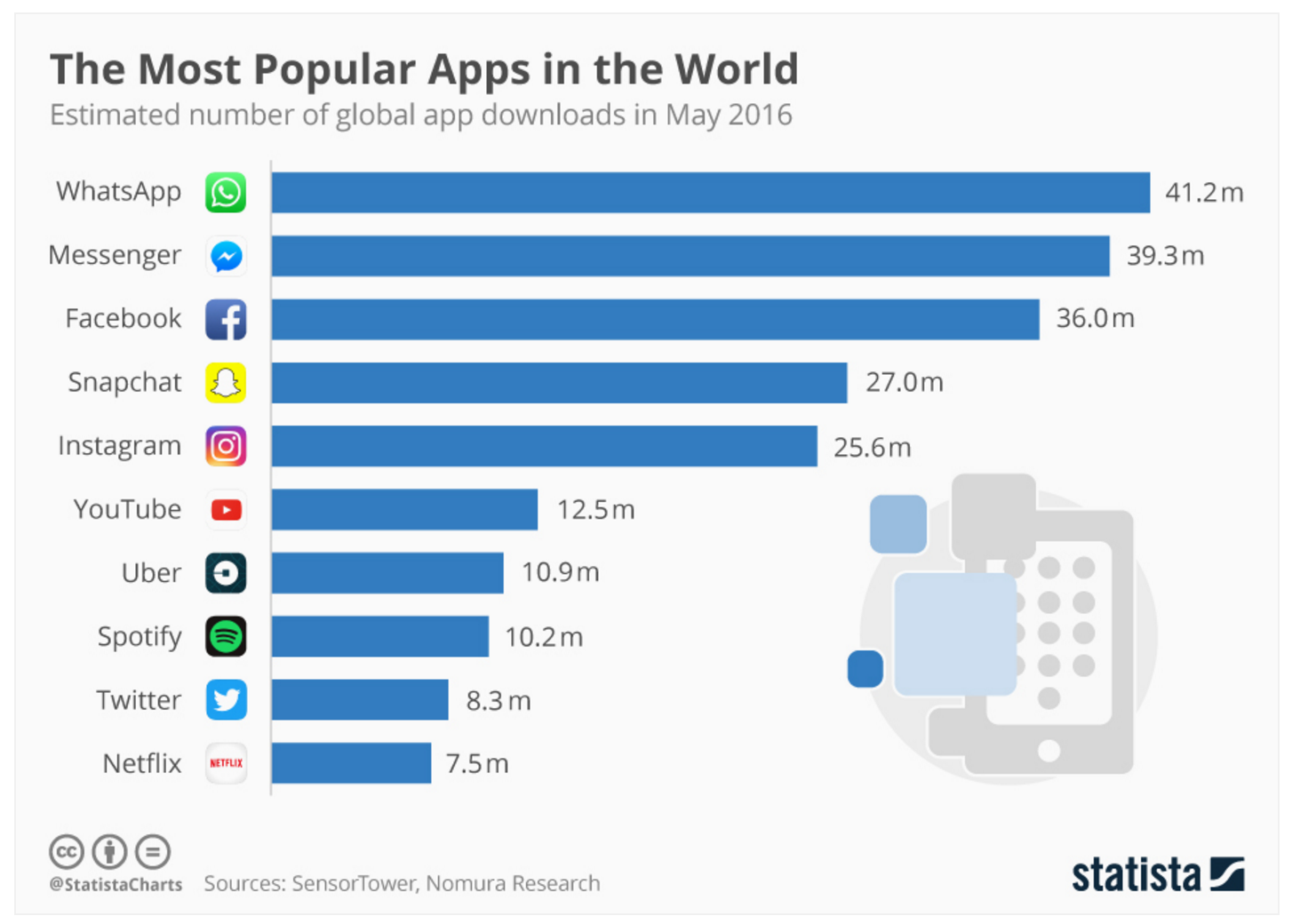Now & Next: Apps vs Mobile Web
by Rebecca Muir on 11th Jul 2016 in News

Now & Next is a feature written by the ExchangeWire Research team. Every four weeks, we review the latest research, provide impartial insight and analysis of current trends, and provide predictions for the future of advertising and marketing technology. This feature focuses on the use of apps versus mobile web.
In the ExchangeWire office there have been many debates about whether, one day, apps will triumph over the mobile web, or vice versa. In the mobile web corner, the argument is "you don’t need a mobile app, you just need a website that looks good on mobile devices" – the app-supporters counter "mobile apps have benefits that a website cannot provide".
Today, almost all businesses have a responsive website that looks good, and works well on mobile devices. Consumers are happy to use websites on mobile devices, so is an app really necessary? Let's take a look at the advantages and disadvantages of each:
Advantages of mobile websites
– Immediacy, no waiting for the app to download
– Broader accessibility, easily found through search
– Compatibility, works on all carriers, and operating systems
– Cost-effective
Disadvantages of mobile websites
– No push notifications
– No offline access
– No app store presence
Advantages of apps
– Interactivity/gaming features
– Easily personalised
– Ability to ingest and manipulate data and produce charts or reports (e.g. banking or investment)
– Native functionality or processing e.g. camera access (Instagram, Snapchat, Facebook) or maps access (Uber)
– No internet connection required
Disadvantages of apps
– Expensive to build
– Extra cost and resources required to maintain
– Easily forgotten without habitual use
It is hard to find accurate data about mobile web versus app use, as different methodologies yield vastly different data. At the end of 2014, IAB research reported that only 18% of smartphone users say they strongly favour apps. However, earlier that year, comScore produced a report announcing that 88% of smartphone activity was spent on apps. The problem is that the IAB research relied on users self-reporting the amount of time they spent in apps and was not independently verified and the comScore data is somewhat skewed by Facebook app use, which accounted for one-quarter of time spent in app, gaming (16%), and radio (8%) which paints a different picture of use patterns.
The image below shows the most popular apps in the world, nearly all of which offer links to mobile web-based content which, technically, keeps the user in the app.

Neither will win – they will converge
There is another problem that is often overlooked during the app versus mobile web debate.
The two are not mutually exclusive.
For example, Facebook/Instagram/Snapchat/Pinterest’s mobile apps help users discover content on the mobile web. Therefore, it is an error to judge the success or failure of apps versus mobile web by measuring time spent in-app because much of the time spent in-app is actually browsing the mobile web, just not via a traditional mobile web browser. (Furthermore, mobile web browsers are apps themselves, but that just confuses the issue more...).
The real debate isn’t which solution will triumph, but what will the evolution of both look like.
Advances in responsive web page design, and devices with larger, higher resolution screens, will make the mobile web more useful; universal code/technology will make mobile apps more reliable and easier to develop and maintain.
In May this year (2016) Google launched Android Instant Apps – a way for internet users to instantly run apps, without the need to download and install. This is a big step towards a neutral web/app world.








Follow ExchangeWire